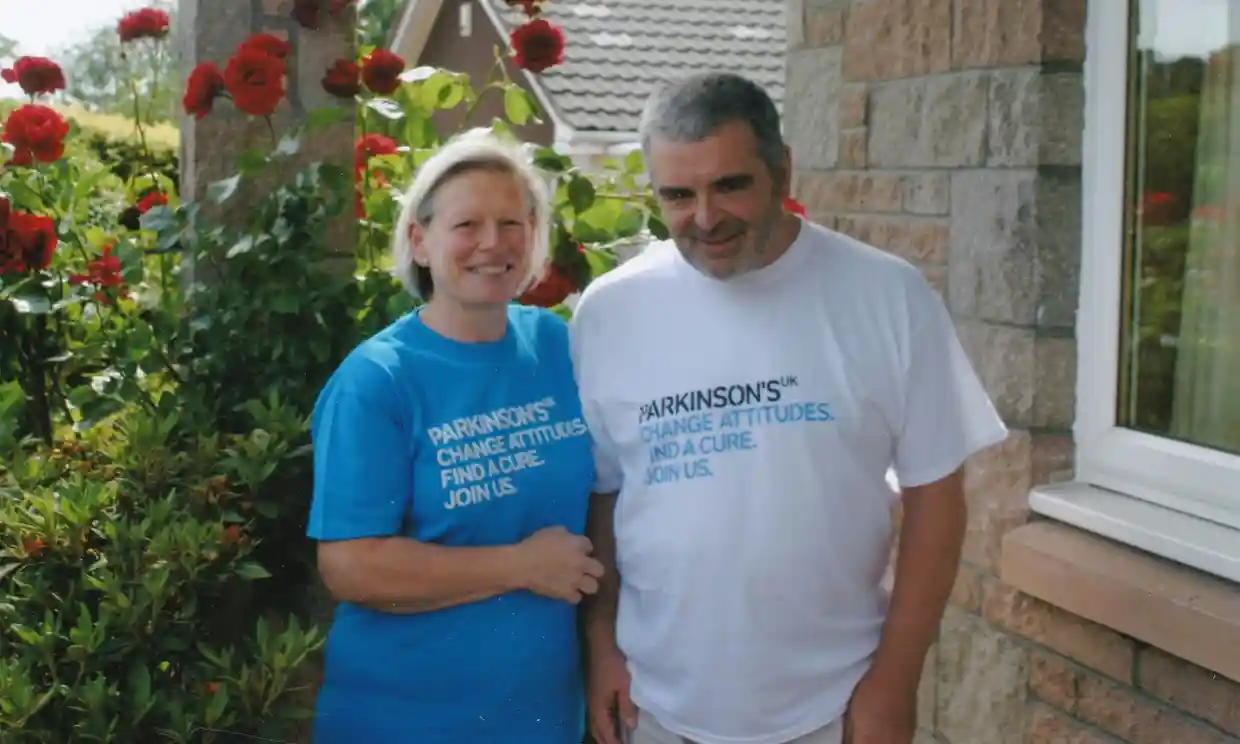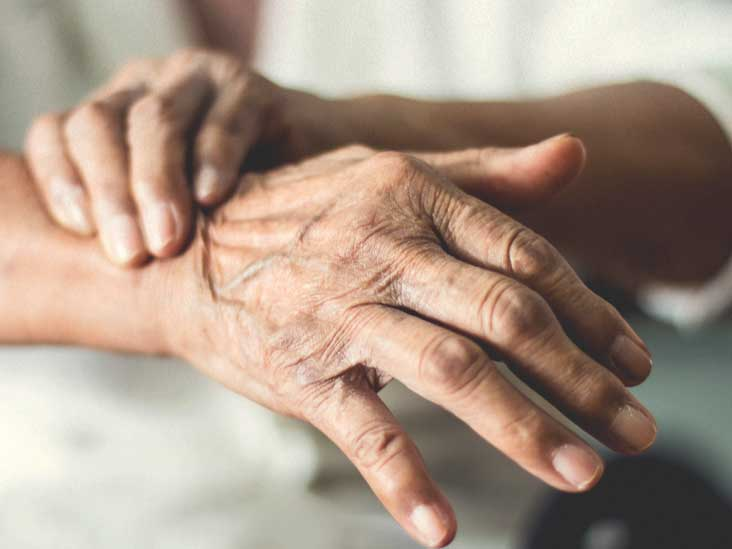Scientists develop test for early diagnosis of Parkinson's disease, thanks to one grandmother's extraordinary ability
- Replies 3
As the saying goes, 'There is a hero in each and every one of us.'
Folks, if you were granted a superpower, such as being able to see or hear things that other people can't, would you be willing to use it for the greater good, like what this woman is doing?
Joy Milne, a 72-year-old grandmother from Perth, Scotland, discovered that she has a gift of a hypersensitive sense of smell.
It was first revealed to her years ago when she was able to pick up on a distinct odour emanating from her late husband, Les, which ultimately led to his diagnosis of Parkinson's disease.
Now, dubbed 'The Woman Who Can Smell Parkinson's', she is using her 'powers' to help researchers in their efforts to diagnose and categorise persons who may have the neurological disorder.

Scientists created a swab test with the help of a woman who can smell Parkinson's disease. Credit: Joy Milne/PA.
Researchers at the University of Manchester have made use of Ms Milne's exceptional 'gift' by creating a test that uses a plain cotton bud run over the back of the neck to identify those who may have Parkinson's disease.
To determine if someone has the condition, researchers can study the sample to look for molecules connected to it.
There is currently no reliable and definitive test for Parkinson's disease; instead, a diagnosis is made solely based on a patient's symptoms as well as their medical history. This situation has not changed in recent years.
Ms Milne recalled that it was her husband, a former doctor, who reportedly went to great lengths just to find a suitable researcher to investigate the correlation between odour and Parkinson's disease; they eventually located Dr Tilo Kunath at the University of Edinburgh in 2012.
To study Ms Milne's extraordinary ability, Dr Kunath collaborated with Professor Perdita Barran.
A chemical shift in sebum (skin oil) brought on by the condition was thought by the researchers to be the source of the odour.
Credit: Australian Academy of Science.
But how exactly did they determine that what Ms Milne was smelling was, in fact, Parkinson's disease and not just something else entirely?
It was part of their preliminary research to have her sniff the t-shirts of people with and without Parkinson's to see if there was a difference in the scents.
Not only did she correctly identify the t-shirts worn by Parkinson's patients, but she also correctly identified one person in the group who did not have Parkinson's as having a 'Parkinson's smell,' and eight months later, that person was indeed diagnosed with the condition.
After years of study, researchers have now developed the first test to detect chemicals and substances unique to Parkinson's sufferers.
Scientists claim they can diagnose Parkinson's disease using a swab from the patient's neck in as little as three minutes. (How revolutionary is that?) These tests are also cost-effective, and they may be trialled within the next two years in some local areas.
According to Ms Milne, it is unacceptable that persons with Parkinson's must first exhibit such severe brain impairment before receiving a proper diagnosis.
'I think it has to be detected far earlier,' she added. 'The same as cancer and diabetes, an earlier diagnosis means far more efficient treatment and a better lifestyle for people. It has been found that exercise and change of diet can make a phenomenal difference.'

The initial symptoms of Parkinson's disease, a degenerative neurological illness, are difficulties moving. Credit: Healthline. (Stock photo)
As of today, Ms Milne has retired from her nursing career and is a proud grandma to seven grandchildren. She is still cooperating with researchers from all across the world to determine whether she is capable of smelling other diseases as well, such as cancer and tuberculosis (TB).
The night before she had to say goodbye to her husband in 2015, she made a promise to him that she would contribute to research on Parkinson's disease until a test could be developed to diagnose and treat this 'cruel disease'.
'I feel lucky that I have this ability to help people with early diagnosis,' she said.
What an incredibly moving story; Ms Milne is deserving of all the praise and success in the world! Let's keep our fingers crossed that the swab test will continue to be as successful as it has been so far in helping to diagnose (and hopefully treat) Parkinson's disease.
Folks, if you were granted a superpower, such as being able to see or hear things that other people can't, would you be willing to use it for the greater good, like what this woman is doing?
Joy Milne, a 72-year-old grandmother from Perth, Scotland, discovered that she has a gift of a hypersensitive sense of smell.
It was first revealed to her years ago when she was able to pick up on a distinct odour emanating from her late husband, Les, which ultimately led to his diagnosis of Parkinson's disease.
Now, dubbed 'The Woman Who Can Smell Parkinson's', she is using her 'powers' to help researchers in their efforts to diagnose and categorise persons who may have the neurological disorder.
Scientists created a swab test with the help of a woman who can smell Parkinson's disease. Credit: Joy Milne/PA.
Researchers at the University of Manchester have made use of Ms Milne's exceptional 'gift' by creating a test that uses a plain cotton bud run over the back of the neck to identify those who may have Parkinson's disease.
To determine if someone has the condition, researchers can study the sample to look for molecules connected to it.
There is currently no reliable and definitive test for Parkinson's disease; instead, a diagnosis is made solely based on a patient's symptoms as well as their medical history. This situation has not changed in recent years.
Ms Milne recalled that it was her husband, a former doctor, who reportedly went to great lengths just to find a suitable researcher to investigate the correlation between odour and Parkinson's disease; they eventually located Dr Tilo Kunath at the University of Edinburgh in 2012.
To study Ms Milne's extraordinary ability, Dr Kunath collaborated with Professor Perdita Barran.
A chemical shift in sebum (skin oil) brought on by the condition was thought by the researchers to be the source of the odour.
Credit: Australian Academy of Science.
But how exactly did they determine that what Ms Milne was smelling was, in fact, Parkinson's disease and not just something else entirely?
It was part of their preliminary research to have her sniff the t-shirts of people with and without Parkinson's to see if there was a difference in the scents.
Not only did she correctly identify the t-shirts worn by Parkinson's patients, but she also correctly identified one person in the group who did not have Parkinson's as having a 'Parkinson's smell,' and eight months later, that person was indeed diagnosed with the condition.
After years of study, researchers have now developed the first test to detect chemicals and substances unique to Parkinson's sufferers.
Scientists claim they can diagnose Parkinson's disease using a swab from the patient's neck in as little as three minutes. (How revolutionary is that?) These tests are also cost-effective, and they may be trialled within the next two years in some local areas.
According to Ms Milne, it is unacceptable that persons with Parkinson's must first exhibit such severe brain impairment before receiving a proper diagnosis.
'I think it has to be detected far earlier,' she added. 'The same as cancer and diabetes, an earlier diagnosis means far more efficient treatment and a better lifestyle for people. It has been found that exercise and change of diet can make a phenomenal difference.'
The initial symptoms of Parkinson's disease, a degenerative neurological illness, are difficulties moving. Credit: Healthline. (Stock photo)
As of today, Ms Milne has retired from her nursing career and is a proud grandma to seven grandchildren. She is still cooperating with researchers from all across the world to determine whether she is capable of smelling other diseases as well, such as cancer and tuberculosis (TB).
The night before she had to say goodbye to her husband in 2015, she made a promise to him that she would contribute to research on Parkinson's disease until a test could be developed to diagnose and treat this 'cruel disease'.
'I feel lucky that I have this ability to help people with early diagnosis,' she said.
What an incredibly moving story; Ms Milne is deserving of all the praise and success in the world! Let's keep our fingers crossed that the swab test will continue to be as successful as it has been so far in helping to diagnose (and hopefully treat) Parkinson's disease.







